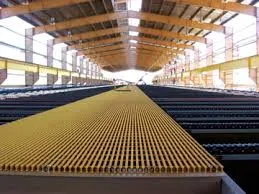
-
 Afrikaans
Afrikaans -
 Albanian
Albanian -
 Amharic
Amharic -
 Arabic
Arabic -
 Armenian
Armenian -
 Azerbaijani
Azerbaijani -
 Basque
Basque -
 Belarusian
Belarusian -
 Bengali
Bengali -
 Bosnian
Bosnian -
 Bulgarian
Bulgarian -
 Catalan
Catalan -
 Cebuano
Cebuano -
 China
China -
 China (Taiwan)
China (Taiwan) -
 Corsican
Corsican -
 Croatian
Croatian -
 Czech
Czech -
 Danish
Danish -
 Dutch
Dutch -
 English
English -
 Esperanto
Esperanto -
 Estonian
Estonian -
 Finnish
Finnish -
 French
French -
 Frisian
Frisian -
 Galician
Galician -
 Georgian
Georgian -
 German
German -
 Greek
Greek -
 Gujarati
Gujarati -
 Haitian Creole
Haitian Creole -
 hausa
hausa -
 hawaiian
hawaiian -
 Hebrew
Hebrew -
 Hindi
Hindi -
 Miao
Miao -
 Hungarian
Hungarian -
 Icelandic
Icelandic -
 igbo
igbo -
 Indonesian
Indonesian -
 irish
irish -
 Italian
Italian -
 Japanese
Japanese -
 Javanese
Javanese -
 Kannada
Kannada -
 kazakh
kazakh -
 Khmer
Khmer -
 Rwandese
Rwandese -
 Korean
Korean -
 Kurdish
Kurdish -
 Kyrgyz
Kyrgyz -
 Lao
Lao -
 Latin
Latin -
 Latvian
Latvian -
 Lithuanian
Lithuanian -
 Luxembourgish
Luxembourgish -
 Macedonian
Macedonian -
 Malgashi
Malgashi -
 Malay
Malay -
 Malayalam
Malayalam -
 Maltese
Maltese -
 Maori
Maori -
 Marathi
Marathi -
 Mongolian
Mongolian -
 Myanmar
Myanmar -
 Nepali
Nepali -
 Norwegian
Norwegian -
 Norwegian
Norwegian -
 Occitan
Occitan -
 Pashto
Pashto -
 Persian
Persian -
 Polish
Polish -
 Portuguese
Portuguese -
 Punjabi
Punjabi -
 Romanian
Romanian -
 Russian
Russian -
 Samoan
Samoan -
 Scottish Gaelic
Scottish Gaelic -
 Serbian
Serbian -
 Sesotho
Sesotho -
 Shona
Shona -
 Sindhi
Sindhi -
 Sinhala
Sinhala -
 Slovak
Slovak -
 Slovenian
Slovenian -
 Somali
Somali -
 Spanish
Spanish -
 Sundanese
Sundanese -
 Swahili
Swahili -
 Swedish
Swedish -
 Tagalog
Tagalog -
 Tajik
Tajik -
 Tamil
Tamil -
 Tatar
Tatar -
 Telugu
Telugu -
 Thai
Thai -
 Turkish
Turkish -
 Turkmen
Turkmen -
 Ukrainian
Ukrainian -
 Urdu
Urdu -
 Uighur
Uighur -
 Uzbek
Uzbek -
 Vietnamese
Vietnamese -
 Welsh
Welsh -
 Bantu
Bantu -
 Yiddish
Yiddish -
 Yoruba
Yoruba -
 Zulu
Zulu
fiberglass vessels and tanks
The Importance of Fiberglass Vessels and Tanks in Modern Industries
Fiberglass vessels and tanks have become an integral part of various industries due to their robust performance and versatile applications. Made from a composite material that combines glass fibers with resin, these vessels offer a range of benefits, including resistance to corrosion, strength, and lightweight properties. In this article, we will explore the reasons for the growing popularity of fiberglass vessels and tanks, their applications, and their advantages over traditional materials.
The Composition and Properties of Fiberglass
Fiberglass, or glass-reinforced plastic (GRP), consists of strands of glass fibers woven together and bonded with a polymer resin. This unique combination results in a material that is not only strong but also flexible enough to be molded into various shapes. The production process allows for a range of thicknesses and designs, making it suitable for different applications across many sectors.
One of the most significant properties of fiberglass is its exceptional resistance to corrosion. Unlike metals, which can rust when exposed to moisture, fiberglass does not corrode, making it ideal for storing chemicals and liquids that may otherwise degrade traditional materials. This property significantly extends the lifespan of the vessels, reducing maintenance costs and the need for frequent replacements.
Applications of Fiberglass Vessels and Tanks
Fiberglass vessels and tanks are used across a myriad of industries, including
1. Water Treatment In municipal and industrial water treatment facilities, fiberglass tanks are widely used for sedimentation, filtration, and chemical storage. Their non-corrosive nature ensures the integrity of the treated water, making it safe for consumption and use.
2. Chemical Storage The chemical industry relies heavily on fiberglass tanks for the storage of hazardous materials. Their strong, corrosion-resistant nature protects against chemical spills and leaks, ensuring compliance with environmental regulations.
3. Agriculture In agriculture, fiberglass tanks are used for storing fertilizers and pesticides, as well as for water collection in irrigation systems. Their lightweight design allows for easier transportation and installation compared to metal alternatives.
fiberglass vessels and tanks

4. Marine Applications In the marine sector, fiberglass vessels are used for everything from boats to storage tanks for fuel and water. Their buoyancy and resistance to saltwater make them ideal for use in harsh marine environments.
5. Oil and Gas Industries Fiberglass tanks are utilized for the storage and transportation of oil and gas products. The material's strength and resistance to harsh chemicals make it an ideal choice for these applications.
Advantages of Fiberglass Over Traditional Materials
The benefits of fiberglass vessels and tanks extend beyond their physical properties. Here are some key advantages over traditional materials like metal or concrete
- Lightweight Fiberglass is significantly lighter than steel or concrete, which simplifies the transportation and installation processes. This is particularly advantageous in remote locations where heavy machinery may not be readily available.
- Cost-Effective Although the initial investment in fiberglass may be higher than some traditional materials, the durability and low maintenance requirements lead to long-term savings. The need for regular inspections, repairs, and replacements is minimized, making fiberglass a cost-effective choice.
- Customizability Fiberglass can be molded into virtually any shape or size, allowing for tailored solutions to meet specific industry requirements. This flexibility ensures that the vessels and tanks can fit within existing frameworks or systems seamlessly.
- Reduced Environmental Impact Using fiberglass for storage means fewer risks of leaks and spills, thus minimizing environmental impact. Their efficiency contributes to more sustainable practices within industries that involve hazardous materials.
Conclusion
In a world moving towards smarter, more sustainable solutions, fiberglass vessels and tanks stand out as a leading choice for various industries. Their exceptional properties, versatile applications, and numerous advantages over traditional materials make them indispensable in water treatment, chemical storage, agriculture, marine applications, and beyond. As technology continues to advance, the future of fiberglass in industrial applications looks promising, paving the way for safer and more efficient practices across the board.









